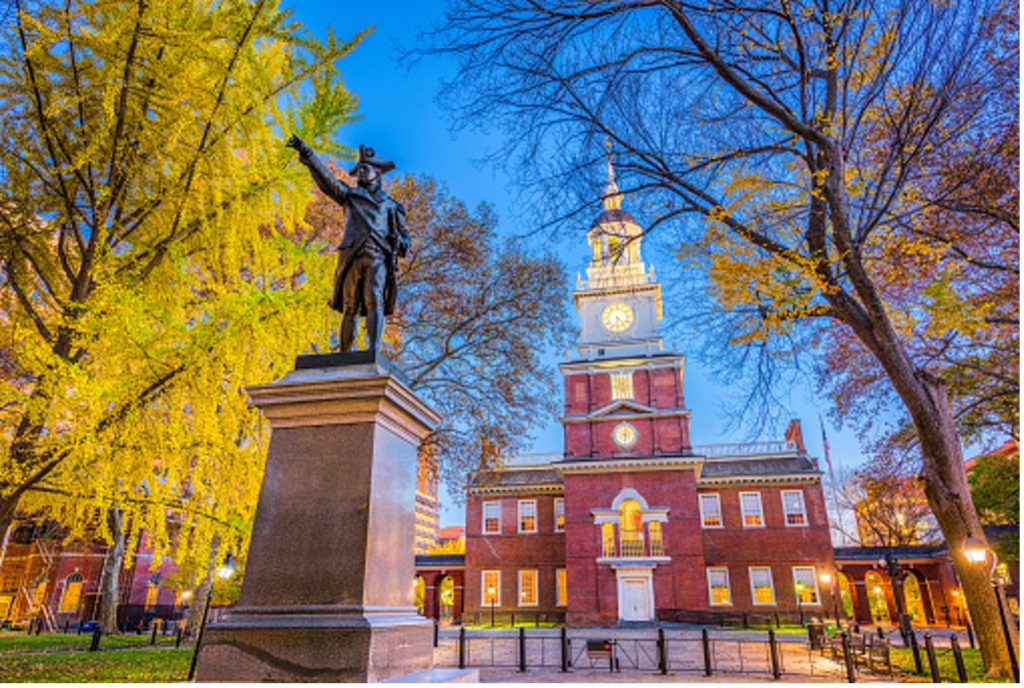by John Brophy, Staff Writer
Without knowing, Pennsylvanians enjoy greater constitutional rights than their national peers. Recently, the Supreme Court of Pennsylvania held that Article I, Section 8 of the Pennsylvania Constitution offers “more expansive” protection than the 4th Amendment to the U.S. Constitution.[1]
One aspect of daily life that exemplifies this difference is driving. Prior to the mid-1990s, Pennsylvania followed the federal automobile exception first established in Carroll v. United States.[2] Under the federal standard, a police officer may validly perform an inventory search of an automobile upon a finding of probable cause.[3] While this is the national standard, it has been deemed “wholly unacceptable,” in Pennsylvania.[4]
Post-Alexander, Pennsylvania rebuffed the Federal standard, stating that such a standard is “impossible to uphold,” under Article I, Section 8 of the Pennsylvania Constitution.[5] In applying the heightened standard, the Court held that the Pennsylvania Constitution requires both probable cause and exigent circumstances, and “one without the other is insufficient.”[6] Otherwise, the officer must obtain consent or a warrant.[7]
Additionally, police officers themselves are incapable of determining that “probable cause” has been shown.[8] Rather, the officer must present an application for a warrant to a magistrate, with a focus on the discrete facts.[9]
Justice Todd’s constitutional analysis in Alexander will remain relevant as the federal right to privacy is eroded.[10] After Justice Alito’s decisive proclamation in Dobbs that “the constitution does not confer a right to abortion,” Pennsylvanians will naturally wonder about the broader implications on the Commonwealth.[11] The Pennsylvania Supreme Court held that the plain text of the Pennsylvania Constitution and its jurisprudence undeniably protects Pennsylvanians’ right to privacy.[12]
Stated plainly, the Pennsylvania Constitution explicitly prioritizes the distinct privacy rights of its citizens above the needs of law enforcement to present incriminating evidence in court.[13]
Within the Commonwealth, Pennsylvanians are embracing the enhanced right to privacy when it comes to automobiles.[14] The Pittsburgh City Council voted in 2021 to amend the enforcement of the Pennsylvania Vehicle Code within the city.[15] The amendment restricts police officers from initiating a motor vehicle stop for a “secondary violation.”[16] The vehicle code identifies “secondary violations” as those which are regulatory in nature, such as a recently expired registration sticker; they are a separate class of infractions that do not implicate driver conduct.[17]
The City of Pittsburgh voted to enact the amendment a year after that the Pennsylvania Supreme Court issued the Alexander opinion, suggesting that the Commonwealth is moving in a unified direction towards an expansion of privacy rights.[18]
While this article has focused on automobiles, it carries implications for other aspects of Pennsylvanians’ lives seen through the dynamic nature of federalism. The Pennsylvania Supreme Court made clear in Alexander that it does not move in lockstep with the federal government when it comes to privacy rights.[19]
Unsurprisingly, the caselaw implications of Alexander have not penetrated the common understanding of privacy rights. One such example is a “zine” published anonymously in the Summer of 2022.[20] The short magazine is titled Know Your Rights in Allegheny County, with subsections regarding rights in particular scenarios.[21]
While the intentions of the anonymous author are seemingly good, the “zine” contains several critical errors that could expose readers to unnecessary criminal liability. The first is its reliance on Carroll, the hundred year old federal standard, that was emphatically rejected by the Pennsylvania Supreme Court.[22] Such reliance would waive the heightened protection afforded within the Commonwealth; the federal standard does not provide the right to have a magistrate rule on a warrant to perform a vehicle search.[23] Second, it identifies the “plain smell” doctrine as being “ripe for abuse,” but does not inform the reader that it no longer applies to marijuana in the Commonwealth, since the Medical Marijuana Act limited the doctrine’s applicability.[24]
These examples are a reminder that the U.S. Constitution is not the only source of individual rights. They also highlight the importance of staying up to date, and local, on the rights that affect our daily lives.
[1] Commonwealth v. Alexander, 243 A.3d 177 (Pa. 2020).
[2] Carroll v. United States, 267 U.S. 132 (1925).
[3] Id.
[4] 243 A.3d at 207.
[5] 243 A.3d at 198-99.
[6] Id. at 207.
[7] Id.
[8] Commonwealth v. Barr, 266 A.3d 25 (Pa. 2021).
[9] Id. at 40.
[10] Dobbs v. Jackson Women’s Health Organization, 597 US _ (2022).
[11] Id.
[12] Alexander, 243 A.3d at 208.
[13] Id.
[14] Section 503.17: Equitable and Fair Enforcement of Motor Vehicle Laws.
[15] Id.
[16] 503.17(c)(3).
[17] 503.17(2)(i)-(vii).
[18] 503.17.
[19] 243 A.3d 177.
[20] https://archive.org/stream/kyr-zine/KYR%20-%20Booklet_djvu.txt
[21] Id. at 1.
[22] Id. at 8.
[23] Alexander, 243 A.3d 177.
[24] Barr, 266 A.3d 25.

